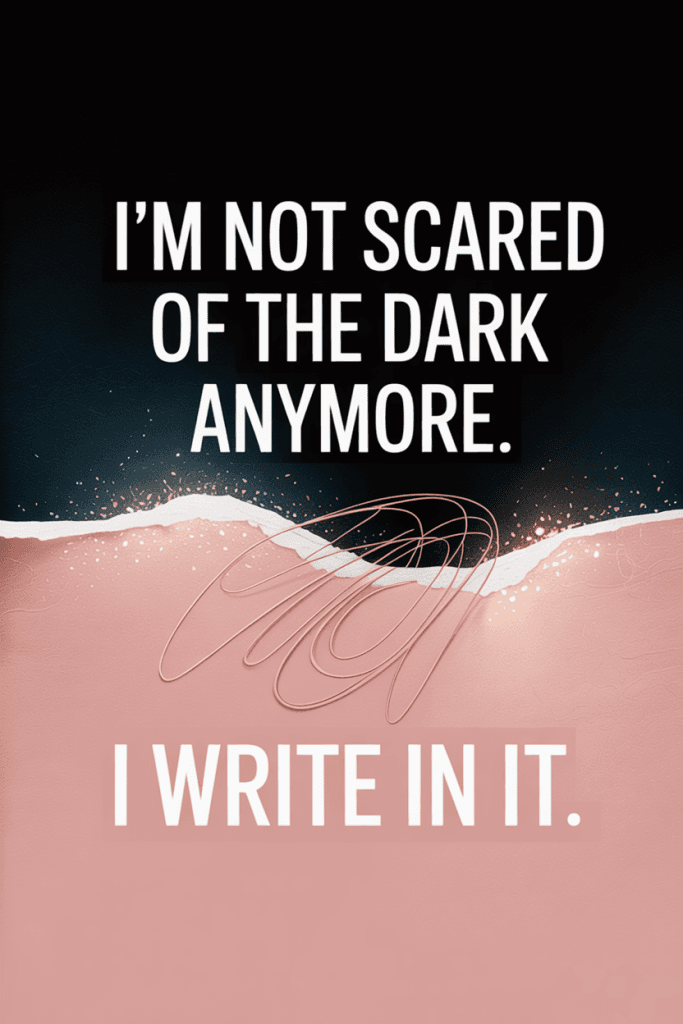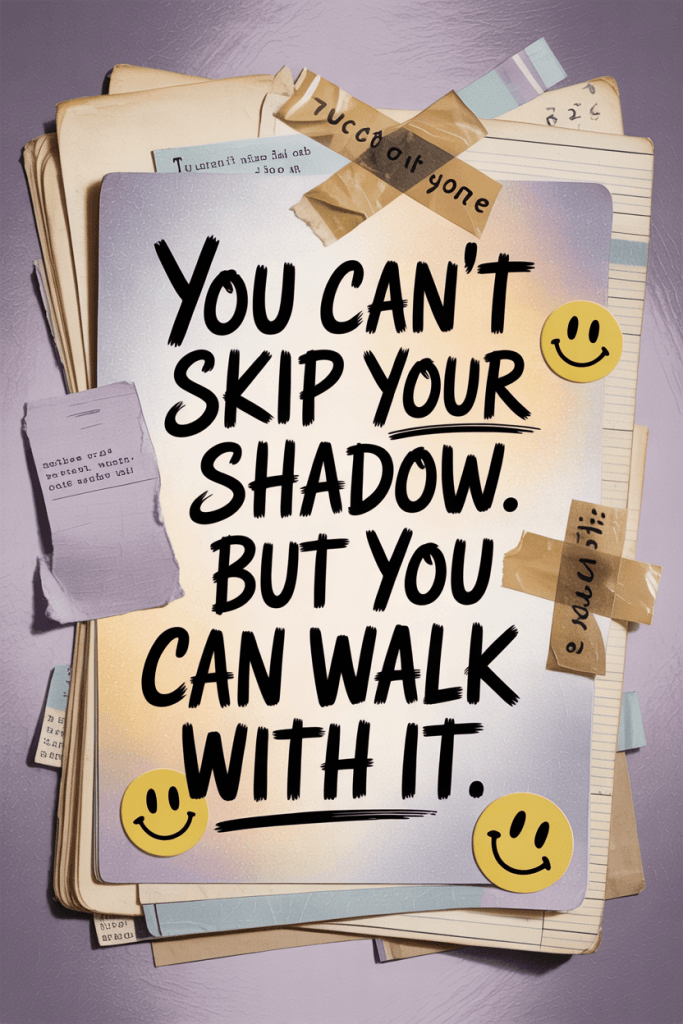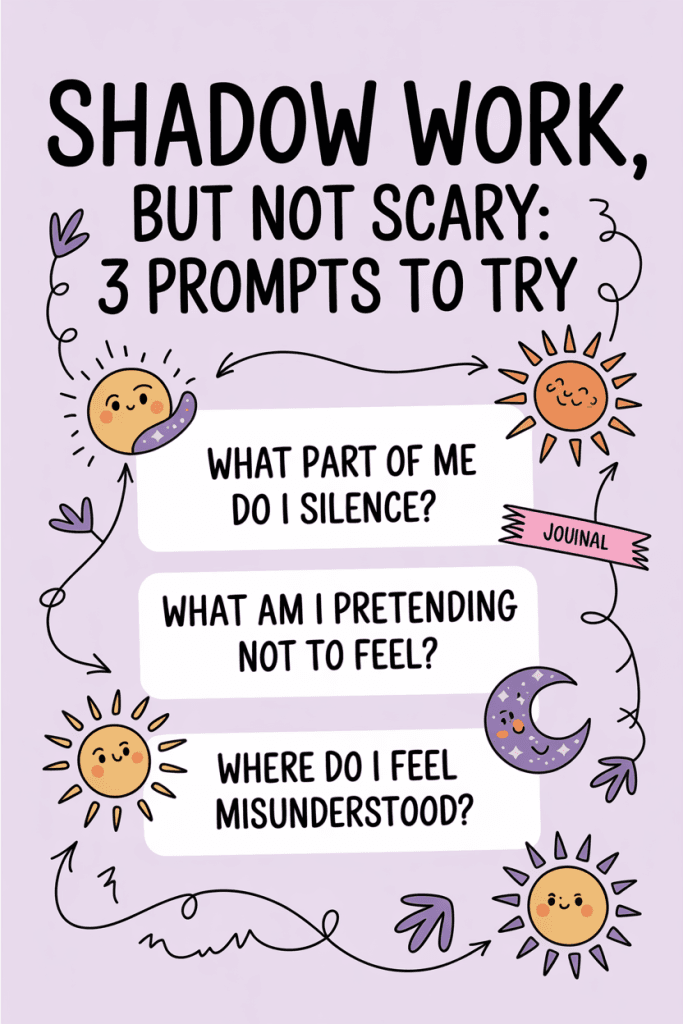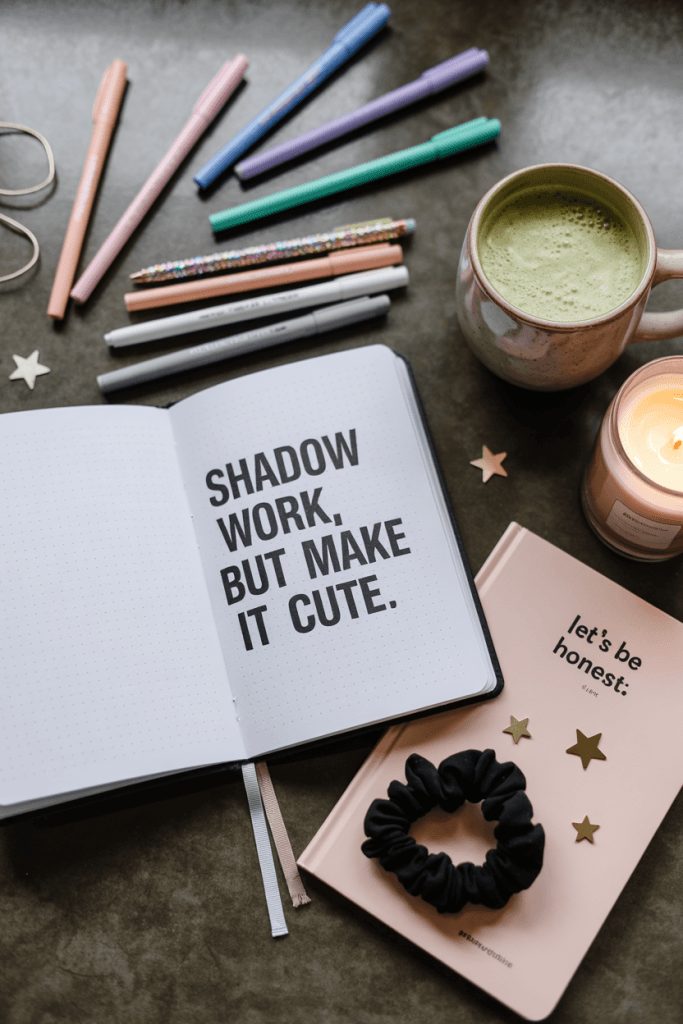There’s a side of you that doesn’t always show up on your highlight reel—the part that holds fear, shame, regrets, and messy emotions. Psychologist Carl Jung called this your “shadow self.” And while it might sound dark, getting to know that version of yourself can actually lead to serious healing. That’s where shadow work journaling comes in.
This isn’t about being dramatic or stuck in the past. It’s about radical honesty. By facing your inner shadows on the page, you create space for healing, self-awareness, and emotional freedom. And yes—this kind of journaling can absolutely change your life.

Why Shadow Work Journaling Actually Works (Science Says So)
Let’s break the “woo” stigma. Repressing emotions isn’t just emotionally exhausting—it can take a toll on your body. Research published in Emotion found that suppressing negative emotions increases stress and even affects physical health.
Journaling, on the other hand, offers a release. It lets you process what’s been bottled up and bring buried emotions to light in a private, judgment-free space. This builds real emotional resilience.
Curious about how journaling helps your brain? Check out our guide to journaling for mental health.
The Benefits of Shadow Work Journaling
• Self-Awareness Hits Different
You’ll start recognizing emotional triggers, inner narratives, and deep-rooted beliefs that quietly shape your reactions.
• Fewer Triggers, More Control
The more you explore your pain, the less power it holds. You stop reacting automatically—and start choosing your responses.
• Your Relationships Improve
Noticing patterns like projection or people-pleasing can shift how you connect with others.

• You Build Real Self-Compassion
Flaws, regrets, fears—they’re part of being human. Shadow work helps you stop fighting them and start accepting them.
• Personal Growth Becomes the Default
You’ll grow more intentional, grounded, and self-aware—with a clearer sense of purpose.
How to Start Shadow Work Journaling (Without Spiraling)
1. Create a Safe, Private Space
This work can feel intense. So make it sacred—dim lights, music, blanket, whatever feels comforting and still. Give yourself full permission to be raw.
2. Pick a Method That Feels Natural
- Free Writing: Let your thoughts spill without a filter.
- Guided Prompts: Structured questions help if you’re new to this.
- Dialogue Writing: Write like you’re having a convo with your shadow. Ask it questions. Let it respond.
Want to explore styles that match your mood? Try out different journaling styles for beginners.
Shadow Work Prompts to Get You Started
- What traits in others trigger me—and could they reflect something in myself?
- What past mistake still holds guilt or shame? Can I begin to forgive myself?
- When do I self-sabotage—and what’s underneath that behavior?
- What childhood belief still impacts the way I see myself?
- When do I feel most insecure, and where did that begin?
Not sure where to begin? Here’s how to start journaling when you don’t know what to write.

Let the Feelings Happen (Seriously)
Shadow work journaling can stir up anger, sadness, even grief. That’s normal. Let it out. Cry if you need to. Breathe through it. The goal isn’t to control your emotions—it’s to give them space to be seen.
Reflect + Integrate = Growth
After writing, pause. Ask: What did I learn about myself? Is there something I need to shift in my day-to-day life? It might mean setting a boundary, rewriting a story you tell yourself, or choosing kindness over self-criticism.
Make Shadow Work Part of Your Weekly Flow
You don’t have to journal like this every day. Once or twice a week is powerful. It’s about staying in conversation with your full self—not just the curated version.
And over time? You’ll start to notice the difference: more emotional clarity, more grounded choices, and a stronger connection to who you really are.

Final Thoughts: Your Shadow Doesn’t Make You Broken
Shadow work journaling isn’t about “fixing” yourself. It’s about reclaiming the parts of you that deserve love, not shame. When you stop running from your shadow, you realize—there’s nothing wrong with you. There never was.
So grab your journal. Sit with your thoughts. And start listening.



